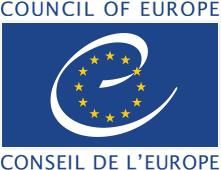Policies for plurilingualism
 The emphasis from an early stage in Council of Europe projects on successful communication skills, motivated by increasing opportunities for interaction and mobility in Europe, remains important, but globalisation and internationalisation pose new challenges to social cohesion and integration. Language skills remain essential if individuals are to benefit from opportunities in employment and mobility but they are also necessary to participate actively in the social and political processes which are an integral part of democratic citizenship in the multilingual societies of Council of Europe member states.
The emphasis from an early stage in Council of Europe projects on successful communication skills, motivated by increasing opportunities for interaction and mobility in Europe, remains important, but globalisation and internationalisation pose new challenges to social cohesion and integration. Language skills remain essential if individuals are to benefit from opportunities in employment and mobility but they are also necessary to participate actively in the social and political processes which are an integral part of democratic citizenship in the multilingual societies of Council of Europe member states.
- 'Multilingualism' refers to the presence in a geographical area, large or small, of more than one 'variety of language' i.e. the mode of speaking of a social group whether it is formally recognised as a language or not; in such an area individuals may be monolingual, speaking only their own variety.
- 'Plurilingualism' refers to the repertoire of varieties of language which many individuals use, and is therefore the opposite of monolingualism; it includes the language variety referred to as 'mother tongue' or 'first language' and any number of other languages or varieties. Thus in some multilingual areas some individuals are monolingual and some are plurilingual. More...




/https%3A%2F%2Fprofilepics.canalblog.com%2Fprofilepics%2F1%2F0%2F1076071.jpg)